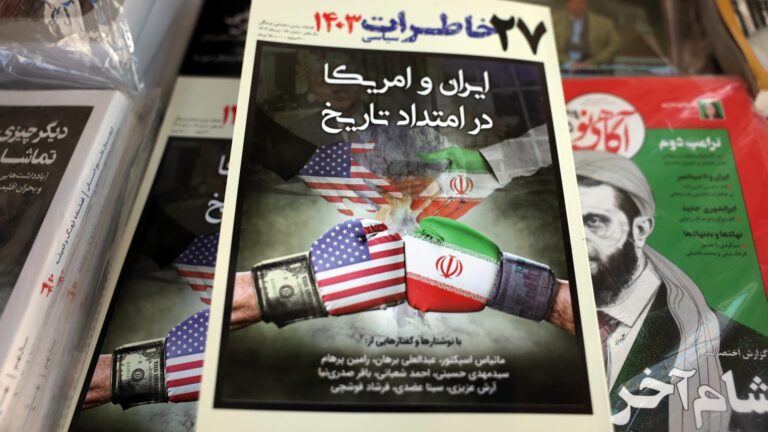Diplomatic Tensions Rise: iran’s Reaction to Jafar Panahi’s Cannes Victory
The recent recognition of dissident filmmaker Jafar Panahi at the Cannes Film Festival has ignited a diplomatic firestorm between Iran and France. Panahi,who has faced severe repression in his home country for his candid critiques and artistic endeavors,received a prestigious award that has drawn ire from Iranian authorities. This incident not only highlights the cultural divide between these two nations but also emphasizes the intricate relationship among politics, art, and human rights on a global scale. As accolades for Panahi accumulate, the Iranian regime’s discontent illustrates the challenges of managing dissent domestically while contending with international scrutiny. This article explores the ramifications of Panahi’s achievement and its impact on relations within Iran and beyond.
Iran-France Tensions Erupt Over Cannes Celebration
As global cinema enthusiasts celebrated a prominent dissident filmmaker at Cannes, tensions escalated between Tehran and Paris. The Iranian government condemned France’s keen reception of Panahi—an outspoken critic of their regime—labeling it as political maneuvering aimed at undermining their authority. Officials in Tehran accused france of providing a platform for dissent against the Islamic Republic, asserting that such actions jeopardize diplomatic ties and exacerbate divisions.
In defense, French representatives underscored their commitment to artistic freedom and highlighted cinema as an essential medium for social commentary. Key figures within the French government articulated that honoring filmmakers like Panahi reflects support for those who challenge oppression through art. This clash serves as a microcosm of broader geopolitical tensions where culture intersects with politics; thus,festivals like Cannes become arenas showcasing contrasting ideologies amid ongoing struggles for creative expression against authoritarianism.
| Main Points of Disagreement | Iranian Outlook | French Perspective |
|---|---|---|
| Dissident Recognition | A tool for political strategy | A celebration of free speech |
| Diplomatic Impact | Threatens bilateral relations | Cultivates cultural connections |
| cultural meaning | An instrument of propaganda | A step forward in human rights advocacy |
Political Dynamics: The Implications Behind Awarding Dissent in film
The recent accolade awarded to Jafar Panahi at Cannes has sparked intricate cultural-political dynamics between Iran and France. Known for his critical depictions of governmental authority in Iran, this filmmaker utilized this esteemed platform to amplify voices advocating dissent within his homeland.The renowned festival is now embroiled in diplomatic controversy as Iranian officials vehemently oppose recognition given to works challenging state narratives. Critics argue that such honors transcend mere artistry; they function as potent symbols within an ongoing struggle against oppressive regimes seeking to stifle freedom.
This event raises meaningful questions regarding international relations and cultural diplomacy while highlighting broader battles over narrative control globally. Two pivotal factors emerge from this discourse:
- A Beacon of Resistance:The award represents not just artistic excellence but also embodies defiance against authoritarian rule.
- A Geopolitical Catalyst:Iran’s response may encourage European nations to reassess how they engage with countries suppressing creative liberties.
Strategies for Improving Relations: A Path Forward for France and Iran
The escalating tensions following high-profile film awards underscore an urgent need for both France and Iran to seek constructive dialog avenues amidst rising discord over dissidents’ recognition. As public sentiment evolves on both sides, it becomes crucial that France acknowledges Iranian cultural narratives while steadfastly promoting human rights principles.
Collaborative initiatives centered around culture can serve as vital conduits toward fostering understanding beyond political disagreements.
Here are some potential strategies:
- Sponsoring joint Film festivals:Create opportunities showcasing Iranian cinema before French audiences to enhance mutual recognition.
- Pursuing Arts Diplomacy:Nurture art forms—including film—as platforms facilitating dialogue about peaceful protest.
- Cultivating Open Forums:Create safe spaces where filmmakers can share experiences without fear or censorship.
Iran engaging constructively with France entails adopting more nuanced perspectives concerning dissent issues internationally.
Both countries could benefit by focusing on shared interests like trade partnerships or climate change initiatives—allowing them room beyond ideological conflicts.
Establishing bilateral discussions could facilitate progress centered around topics resonating positively across populations:
| discussion Topic | Objectives |
|---|---|
| Cultural Exchanges | Foster mutual respect & understanding across diverse viewpoints . |
| Economic Collaboration | Expand beneficial trade relationships . |
| Environmental Initiatives | Jointly tackle pressing ecological challenges . |




